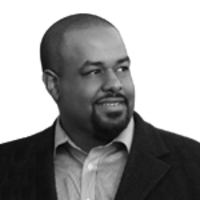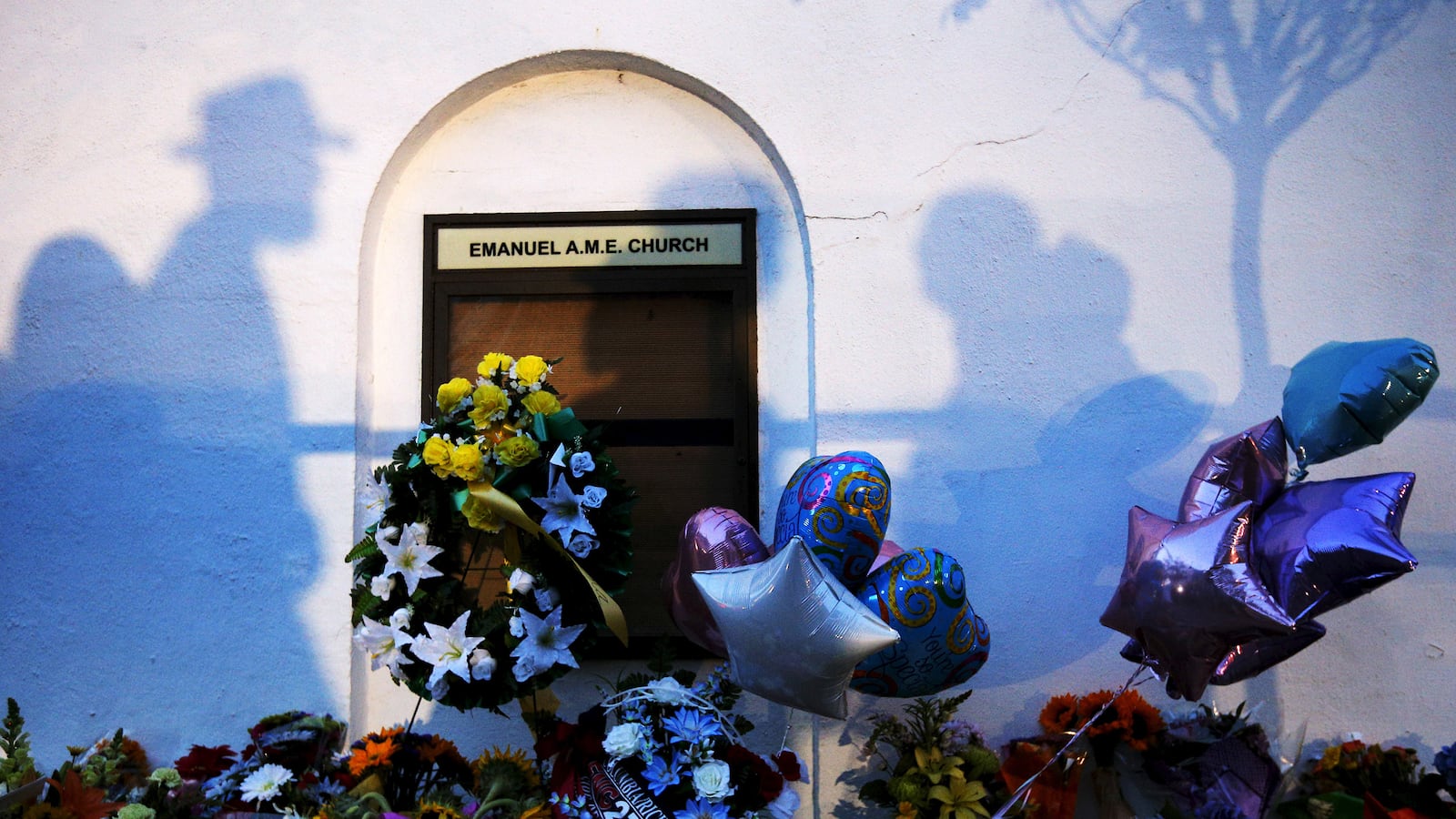“Clementa was a very, very, very good friend. Joshua, I just don’t have the words...”
My dad’s voice broke open when I spoke with him yesterday. And my father, a strong African Methodist Episcopal (A.M.E.) preacher, doesn’t tend to crack. He knew Rev. Clementa Pinckney, the murdered pastor of Emanuel A.M.E., well. They were friends.
I grew up sitting in A.M.E. pews, a proud preacher’s kid. We had choir rehearsal, Sunday school, Vacation Bible School. Quarterly, Annual and General Conferences. Sunday service and, of course, Wednesday night bible study, much like the one in Charleston that was attacked this week.
Like many Black folks, and surely like many of the deceased at Emanuel, our lives were anchored in our congregations. It didn’t matter what we were dealing with at school or work, whether the bank account was stable or declining. When we had nothing else—when the outer world was confusing or even seemed aligned against us—we always had the sanctuary that was our church. In my case, the African Methodist Episcopal Church.
That sanctuary has been violated in Charleston in the most brutal of ways. Black folks are mourning, and angry. And you have to know the history to fully understand why.
The A.M.E. Church is a denomination built on a foundation of holy defiance. In 1787, its founder, Richard Allen, grew tired of the segregated services at St. George’s United Methodist Church in Philadelphia and marched his fellow Black members out to form a church of their own, one that became the African Methodist Episcopal Church. From the very beginning, A.M.E.’s have had Jesus and justice running through their bones.
And Mother Emanuel A.M.E., the site of Wednesday’s carnage, was founded by Denmark Vessey. He led “The Rising,” a great slave revolt plot that nearly set Blacks in Charleston free.
This is a church that was already burnt to the ground by white supremacists once, in that revolt’s aftermath. And now it has been attacked by perhaps the same forces again. As Bishop Vashti McKenzie, the first woman Bishop of the A.M.E. church, said to me yesterday, “If we can’t be safe in the church—then where can we be safe?”
It would be disproportionate to the magnitude of this tragedy to reach pat conclusions and then move along. We need to mourn first. We need to sit with the rage and pain, and mourn.
But then we have to come back to this...sickness. That’s what it feels like to me: a sickness. Not just the one-off malady of an insane individual. But a pervasive, gnawing illness that affects him and others in our country in varying, curious ways.
It’s a sickness that clouds the eyes of a police officer in McKinney, Texas—a fearful mania that causes him to see visions of children as armed criminals requiring disproportionate force.
A sickness that choked the life out of a man screaming that he couldn’t breathe—Eric Garner—because that man’s blackness and bigness and humanity were just too threatening to treat gently.
A sickness that allowed a police officer to see a 12-year-old child in Cleveland—Tamir Rice—and assume that the pellet gun this kid was holding was a deadly weapon, and then shoot him dead.
This sickness is the cancer of unacknowledged bias and supremacy. It has been with us since our founding, and civil rights laws, personal achievements and trappings of success for a fortunate few African Americans have not made us well.
That same illness very likely affected the man who killed the nine A.M.E. souls at Emanuel Church. Yes, the killer was deranged; but he simply had a more extreme version of a common malady. That malady threatens to kill many more—either directly, as in Charleston, or indirectly from the attendant hate and pain.
The question now is: Will we convince ourselves of the delusion that this killer is the only one who is sick? Or will we examine our national conscience and finally take steps to become well?
One of those steps has to be White Americans having an honest conversation about White culture. Yes, White culture.
If that sounds shocking, think about this: How many times have we explicitly asked Black folks to address the “problems” of Black culture, from fatherlessness to violent music to shootings in Chicago? African Americans engage in these conversations regularly. Now it’s time my White brothers and sisters lead their own conversations as well.
We need dinner table conversations about how some White children grow up without a racist bone in their body, but others are predisposed to sing songs about “niggers” on a fraternity bus. How does that happen? What is the cause, and what is the solution? White Americans need to drive this dialogue.
We need conversations about how many gun owners are responsible, but others, surrounded by mortal weapons, seem ready to blow at any moment, searching desperately for an apocalypse to confront or war to fight. What creates the type of paranoia and fear? This discussion needs to be had at the Lion’s Club, the gun range, around tables in White homes.
We need conversations about why, the moment an African-American man was elected to the White house, some people wanted him to “fail” and others desperately sought to “take our country back.” Take our country back from whom? And to where? Where is it, precisely, that some folks would have us go? My brothers and sisters from the majority culture—White Americans—need to have the courage to drive this dialogue, and help us find some answers.
In the meantime, Black folks will continue to go to church. We will worship and restore ourselves and mourn. As we have done after Trayvon, Michael, Eric, Medgar, Jordan, Tarika, Martin, Emmett, Eleanor and so many, many more. We will console and pray and hope that this sleeping country up wakes up. That others—self-aware, non-black folks—will see the full horror of Charleston and desire to exorcise the demons of our history and present culture.
Other than that, I don’t know what to say anymore. Nine Black churchgoers were gunned down after their bible study, this week, in the year 2015, in my own country. I am exhausted and angry. Like my father, I don’t have the words.





